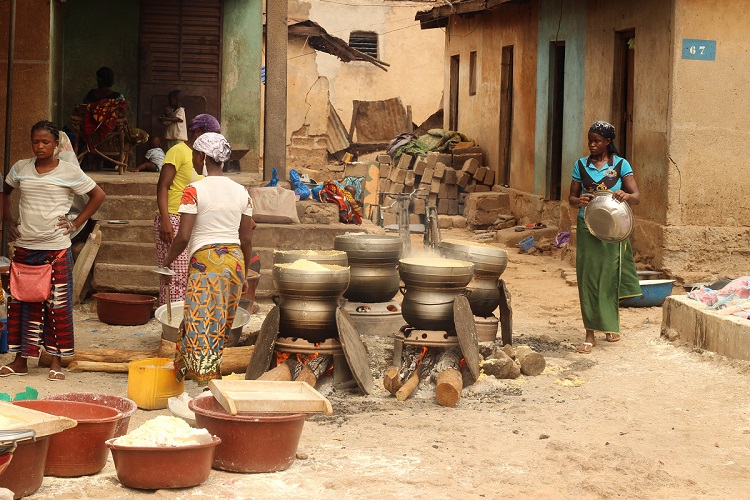A value chain, or the journey a commodity takes from production to consumer, involves a variety of activities performed by different operators, with the aim of delivering a valuable product to the market and eventually the consumer. Each link in the chain can pose a potential loss in value, or serve as an opportunity to ensure sustainable development for the people and natural environment involved.
Harnessing the pivotal role of the value chain, the Directorate General for International Cooperation and Development (DEVCO) of the European Commission created an analytical approach known as ‘VCA4D’ which includes analysis of  three elements of sustainability – economic, social and environmental.
three elements of sustainability – economic, social and environmental.
The aim of the approach is to help guide investment decisions and sectorial policy dialogue with partner countries’ governments on value chain development. This was part of the EC’s 2014–2020 cycle, aimed at food security and inclusive development as the main focal sector of intervention, emphasising particularly the role of agriculture, private sector intervention and investment.
Running from 2016–2022, the Value Chain Analysis for Development (VCA4D) project was created to provide decision-makers with evidence-based information that relates to sustainable development strategies. The project is managed by NRI on behalf of Agrinatura, the European Alliance on Agricultural Knowledge for Development which comprises over thirty universities and research organisations in Europe.
Value chain analysis can help in decision making by assessing appropriate indicators, setting up baseline surveys or informing on the changing situation of the actors related to the intervention. The goal of the methodology is to provide evidence-based elements, supported by indicators measured quantitatively or based on expert assessment, to answer the four framing questions on each value chain (VC):
1) what is the contribution of the VC to economic growth?
2) Is this economic growth inclusive?
3) Is the VC socially sustainable and
4) Is the VC environmentally sustainable?
Typically, each study has four team members: an economist, a social scientist, and environmental scientist specialising in Life Cycle Assessment, and a national expert from the country where the study is being undertaken.
To date, some thirty-five VC studies have been undertaken across the globe on a range of commodities and a further fifteen are scheduled over the next two years. Besides the overall management, NRI has also provided technical expertise in fourteen of these studies.
Cattle value chains in Southern Africa were reported in NRI’s Annual Review 2017–2018; this edition features developments on value chain studies on cashew in Sierra Leone and vanilla in Papua New Guinea.
To find out more about:

